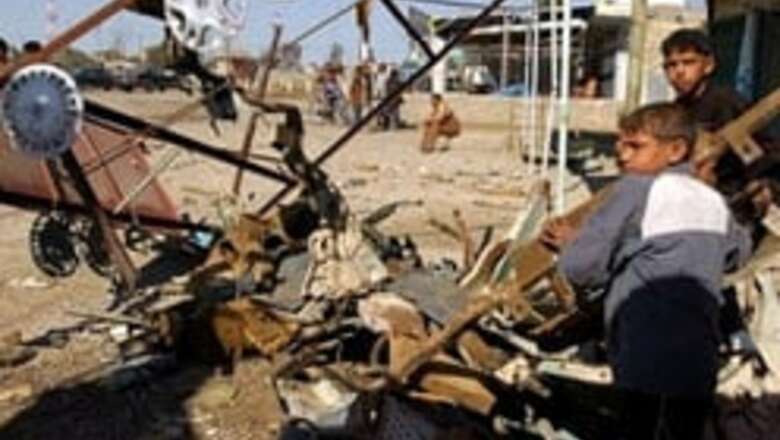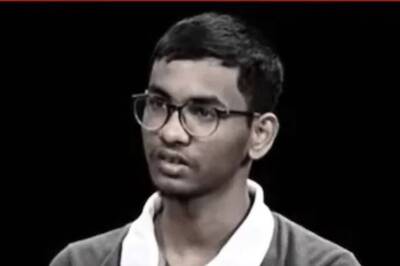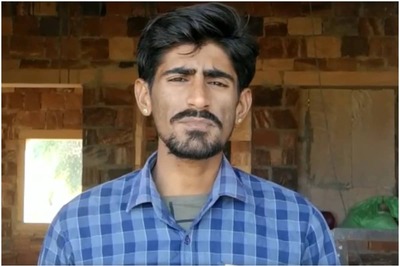
views
Baghdad (Iraq): A suicide car bomber struck a police checkpoint Wednesday in the Shiite holy city of Najaf, killing at least 11 people in the spiritual heartland of the militia factions led by radical cleric Muqtada al-Sadr.
In Baghdad, political tremors grew following claims that a Sunni woman was raped while in custody of the Shiite-dominated police — a case that threatens to escalate the sectarian friction that drives many of the bombings and attacks across the country.
Prime Minister Nouri al-Maliki fired the head of the influential Sunni Endowment after the official called for an international investigation into the rape allegations.
The Najaf blast hit while streets were filled with morning shoppers. At least two of the victims were police and the rest civilians, authorities said.
It was the first major bombing in months in the city, which is heavily guarded by police and al-Sadr's powerful Mahdi Army militia.
On August 10, a suicide attack near the Imam Ali mosque killed at least 35 people and wounded more than 100.
Najaf is a major Shiite pilgrim destination for its iconic Imam Ali shrine near the city's huge cemetery used as a burial place for Shiites throughout the country.
It also is headquarters of Shiite spiritual leader Grand Ayatollah Ali al-Sistani and al-Sadr, whose militia engaged in heavy fighting with US forces in the area in 2004.
Government officials marked the first week of a major security sweep in Baghdad by US and Iraqi forces seeking to put death squads and insurgents on the run.
But a string of bombings in the Baghdad area — which have claimed more than 100 lives since Sunday have quieted the early fanfare and highlighted the huge challenges of trying to reclaim control of the blood-soaked capital.
A car bomb in the western Baghdad district of Bayya killed at least two and injured 31, police said. The area is mixed between Sunni and Shiites and had been a hotbed of sectarian tensions.
The rape allegations by the 20-year-old woman, which surfaced on Monday, have sent the political leadership into turmoil.
A statement by al-Maliki's office gave no reason for the dismissal of Ahmed Abdul-Ghafour al-Samaraie, who directed the state agency overseeing Sunni mosques and seminaries.
But suspicion fell on his harsh criticism of the government's handling of the rape allegations.
The government's quick rejections of the woman’s claims have outraged many Sunnis, who accused al-Maliki of a high-level cover-up.
The Association of Muslim Scholars, a militant Sunni group known to have links with insurgent groups, called it a "moral genocide" and warned of more fallout ahead.
PAGE_BREAK
"Those who perpetrated this crime must know their guilt will not be forgotten," the group said in a statement Tuesday.
A statement by al-Maliki's office accused "certain parties"- presumably Sunni politicians — of inventing the claims in an attempt to undermine security forces during the Baghdad security operation.
Meanwhile, British Prime Minister Tony Blair on Wednesday was to announce a new timetable for the withdrawal of British troops from Iraq, British media reported.
About 1,500 are to return home in several weeks, with a total of about 3,000 British soldiers leaving southern Iraq by the end of 2007, if the security there is sufficient, the British Broadcasting Corp said Tuesday night, quoting government officials who weren't further identified.
Blair was not expected to say when the rest of Britain's forces would leave Iraq. Currently, Britain has about 7,100 soldiers there. Blair's office refused to comment on the BBC report.
A US Marine was killed in fighting in the volatile Anbar province, the military said Wednesday.
The Marine was killed Tuesday during combat operations in the insurgent stronghold in western Iraq.
At least 3,149 members of the US military have died since the Iraq war started in March 2003.
















Comments
0 comment